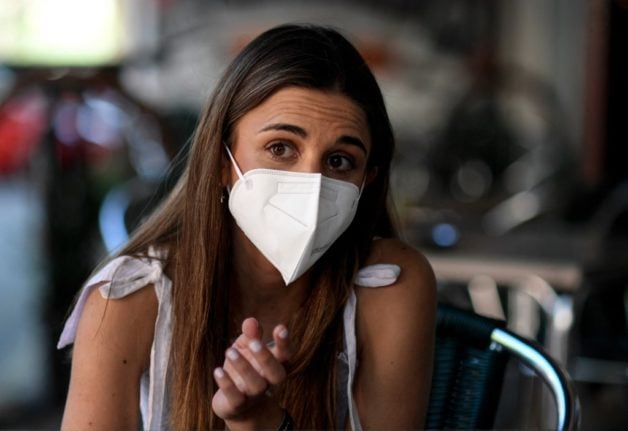Among the measures that federal authorities are proposing from December 12th is that restaurants, shops, markets and leisure facilities close at 7pm and remain shut on Sundays.
It also proposes that five people from two households can gather for private events, with exceptions for celebrations for up to 10 people from December 24th to 26th, and on December 31st for Christmas and New Year festivities.
Total closure is an option if the epidemiological situation does not improve rapidly, the Federal Council warned.
READ MORE: Covid-19: What new rules could Switzerland introduce on Saturday?
Infections are on the rise mainly in the Swiss-German cantons, but the proposed restrictions would be implemented throughout the country.
They would also impact the Swiss-French cantons, where the number of infections has been dropping due to a raft of measures to curb the spread of coronavirus that had been taken in November.
In response to the announced restrictions, cantonal officials from Neuchâtel, Fribourg, Vaud, Jura, Valais and Bern (which includes a French-speaking part) released a joint statement on Wednesday, saying they “disagree with the scope of the new arrangement and regret the way in which it has been prepared”.
The statement goes on to say that “the governments of French-speaking Switzerland cannot accept that such restrictive provisions be imposed on the cantons which have assumed their responsibilities, anticipated difficult and painful decisions for the population as well as for many sectors of society and the economy, publicly assumed these responsibilities, and released significant financial support”.
“The announcement was a shock”, Philippe Leuba, Vaud State Councilor in charge of the economy said in an interview with RTS public broadcaster.
“Federal Council does not distinguish between the cantons which have taken measures and those which have not”.
Another deputy from Vaud, Jérôme Christen, pointed out that “German-speaking cantons have not done their part, while the francophone regions have made significant sacrifices. This collective punishment is not acceptable.”
What modifications of the federal proposal do the French-speaking cantons want?
“While it is important that the population continue to exercise the utmost rigour in complying with the precautionary rules, it is also essential that they be able to have access, under strict conditions, to activities other than those mainly related to work and shopping”, the cantons added.
They are asking the Federal Council to revise their proposed measures as follows:
- Up to 10 people should be allowed to meet in private settings on the weekend of December 19th and 20th. “Many people mobilised by the crisis, and in particular healthcare staff, will be working on December 24th, 25th and 26th, and will not be able to celebrate Christmas with their families”.
- “While bars may be closed at 7 pm, restaurants should be open later, subject to strict compliance with health protection plans”.
- No additional restrictions for Sundays and public holidays.
- The possibility for theaters, cinemas and other cultural venues to accommodate up to 50 people, subject to strict compliance with health protection plans.
- Cantons also added that if the federal government imposes further a restrictions, “it would have to allocate financial aid to the sectors concerned to cover the inevitable losses”.
Geneva is not part of the joint statement because cantonal officials were in session when the press release was drafted, RTS reported.
However, Health Minister Mauro Poggia told the media he is “angry” about the new restrictions.
because “they are disrespectful towards the French-speaking cantons which have assumed their health responsibilities “.




 Please whitelist us to continue reading.
Please whitelist us to continue reading.
Member comments